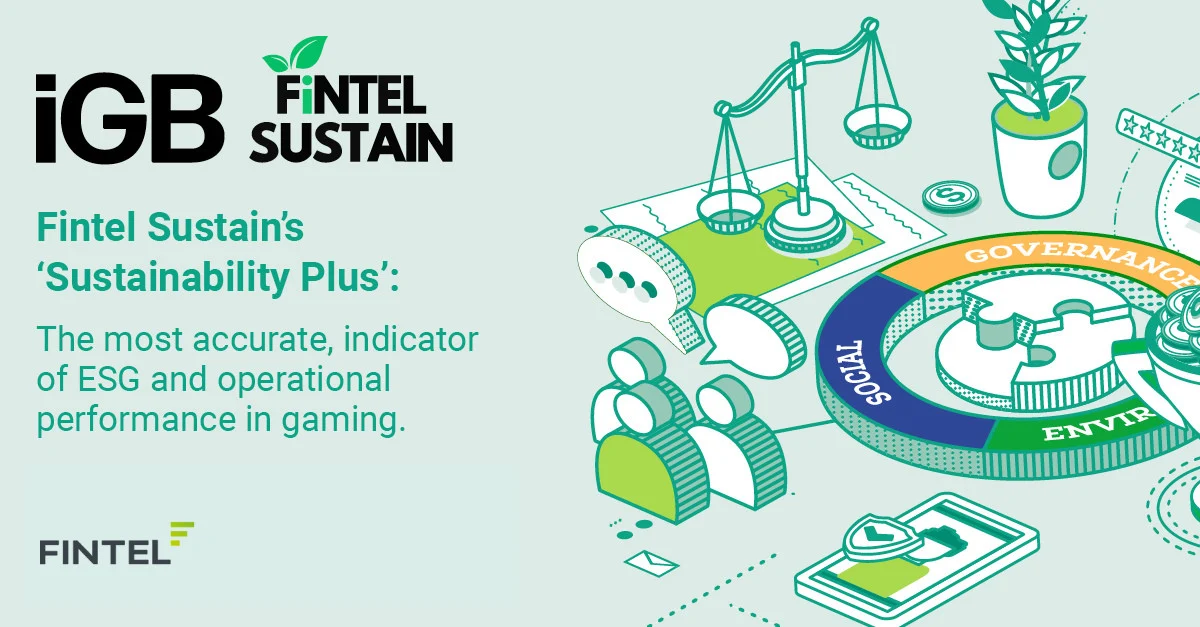Las Vegas Sands tops the FiNTEL Sustain’s Sustainability Plus rankings in its inaugural year. To chief sustainability officer Katarina Tesarova, it shows that gaming is on a par – if not better – than leaders in other industries when it comes to sustainability.
Sustainability is not just a non-negotiable, says Las Vegas Sands’ chief sustainability officer Katarina Tesarova. “It is a required necessity in just about any industry including gaming, integrated resorts or hospitality.
“That’s where the the business world is evolving,” she says. “Now there is just so much more scrutiny, willingly or not, we will all sooner or later need to comply with ESG-related requirements.”
Gambling, Tesarovoa points out, is an industry people used to consider a sin industry – some still see the industry in this light. Therefore, sustainability plays a role in educating different audiences to look at the nuance throughout a sector.
After all, she continues, the larger operators in the industry are on a par – if not better – than other sectors when it comes to ESG. Not only is it subject to stringent regulatory compliance conditions, but it is also particularly sensitive to what is relevant and important to different stakeholders, Tesarova adds. It is a service industry after all.
Las Vegas Sands’ approach to sustainability: Planet, people and communities
“Thus, we perhaps a react a little bit faster to the needs and the expectations of these stakeholders.”
However, Las Vegas Sands doesn’t approach ESG precisely aligned to the traditional pillars. “We organise it along areas people can understand.”
That means a foundation of governance supports three pillars – planet, people and communities.
“The reason for that is that while in the investment space, people understand ESG, all the other stakeholders, of which our team members are the most important one for implementing sustainability, they don’t respond.
“They don’t know what ESG is, but if we frame it that we care about the planet, we care about people, we care about the communities and that it’s very important for us to do business in an ethical way that is something that people can stand behind.”
That also sets out a framework for prioritising different ESG factors based on how they impact the business. And no matter the jurisdiction, whether there are reporting requirements in place or not, the entire business must meet the sustainability requirements set out.
That strategy, as with many in the industry, started out as a series of isolated projects and initiatives across the industry. Tesarova and her team created an ESG framework, then unified the existing projects that fit into that structure in one coherent strategy.
It was a case of determining which initiatives were important enough to retain and which were most deserving of resource. “[This] helped us have a little bit of a lens on which things we should do,” she says. “But I think that the key ingredient in all of this is that we’ve always had support from the leadership. The leadership always saw this as an important thing.
“In general, the principles around sustainability just make a lot of good business sense. So there was always leadership support behind that.”
That support from the top ripples throughout the organisation. “Once people see there is a support at the highest levels in the organisation, they know this is important.”
“Companies that have strong ESG performance also perform better”
That, of course, translates to the investment community she continues. “Anecdotally companies that have strong ESG performance also perform better,” Tesarova explains. “There is some kind of a correlation.
“I was thinking about that correlation and especially for our industry; I say that if we do good by our stakeholders, it creates value for our shareholders.
“If our team members, our employees, believe we are a company that cares about the planet, that cares about people, that cares about their communities, about their neighbours, about the wellbeing of the people around, then they feel more aligned with our business, our company and end up delivering better service. This then results in return customers or higher span and that returns more value to shareholders.”
Tesarova is “incredibly honoured” for recognition from FiNTEL Sustain, topping its Sustainability Plus rankings. “I am so proud of the company, the team, the team members that come up with the programmes, that implement the programmes and they do it in a way that then translates to something that people can see.
“I recognise we, from the beginning, took an approach of not talking a lot about our sustainability strategy. I’m not a communications person.
“We did not spend a lot of time creating the sustainability story, but rather we worked on the projects and programmes and initiatives. The fact that this work was done well enough and that it was seen and recognised by outside organisations and stakeholders is incredibly rewarding because we didn’t do it for that.”




